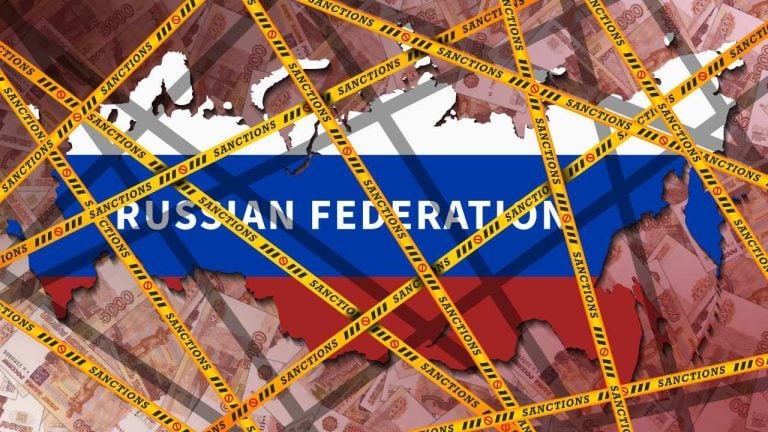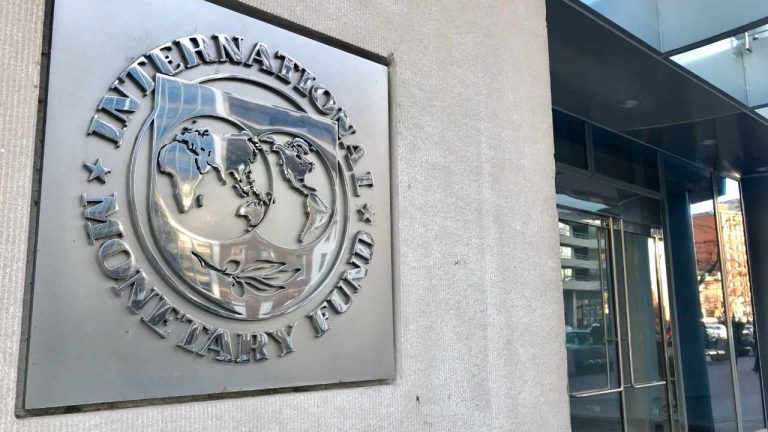 The European Union (EU) is set to provide Ukraine with 1.4 billion euros ($1.52 billion) in military aid, sourced from the interest on frozen Russian assets. This decision, announced by EU High Representative for Foreign Affairs and Security Policy Josep Borrell during a Council on Foreign Affairs meeting, will see the first transfer of funds […]
The European Union (EU) is set to provide Ukraine with 1.4 billion euros ($1.52 billion) in military aid, sourced from the interest on frozen Russian assets. This decision, announced by EU High Representative for Foreign Affairs and Security Policy Josep Borrell during a Council on Foreign Affairs meeting, will see the first transfer of funds […] A Queens woman, Yue Zhou, has been indicted on charges of murder for hire, following an investigation led by Homeland Security Investigations (HSI) New York. Zhou allegedly used a dark web site to solicit a hitman, offering cryptocurrency, cash, and sexual favors. Murder for Hire via Dark Web The Homeland Security Investigations (HSI), a premier […]
A Queens woman, Yue Zhou, has been indicted on charges of murder for hire, following an investigation led by Homeland Security Investigations (HSI) New York. Zhou allegedly used a dark web site to solicit a hitman, offering cryptocurrency, cash, and sexual favors. Murder for Hire via Dark Web The Homeland Security Investigations (HSI), a premier […] The International Monetary Fund (IMF) has urged Ukraine to finalize its crypto legislation, the country’s Deputy Minister of Digital Transformation for IT industry development has revealed. “In the face of war, we have to exploit the full range of opportunities and develop new sectors of the economy,” he stressed, adding that “Legalization of the crypto […]
The International Monetary Fund (IMF) has urged Ukraine to finalize its crypto legislation, the country’s Deputy Minister of Digital Transformation for IT industry development has revealed. “In the face of war, we have to exploit the full range of opportunities and develop new sectors of the economy,” he stressed, adding that “Legalization of the crypto […]
Authorities from the US and UK are reportedly investigating $20 billion worth of crypto assets sent to a Russian crypto exchange platform. According to a new report by Bloomberg, anonymous sources familiar with the incident say that officials from the US and UK are looking into the matter as part of a crackdown effort against […]
The post Officials From the US and UK Investigate Crypto Transfers to Russian Exchange Valued at $20,000,000,000: Report appeared first on The Daily Hodl.

A San Francisco-based crypto exchange has reached an agreement with the U.S. Treasury Department’s Office of Foreign Assets Control (OFAC) to settle its potential civil liability for violating US sanctions related to Russia and Ukraine. In a new enforcement release, the OFAC says that CoinList Markets (CLM) has agreed to pay over $1.2 million as […]
The post US Government Slaps $1,200,000 Penalty on San Francisco Crypto Exchange for Violating Russia/Ukraine Sanctions appeared first on The Daily Hodl.

Officials from Ukraine were trained in tracing crypto transactions over different blockchains using specialized analytics software.
14 Ukrainian officials received advanced training on investigating new-age financial crimes in a training course held from Nov. 14 to Nov. 17 in Vienna, Austria.
According to a report released by the Organization for Security and Co-operation in Europe (OSEC), select supervisory and law enforcement officials from Ukraine learned about advanced techniques and tools required to investigate financial crimes using virtual assets.
OSEC comprises 57 participating countries from Europe, Asia and North America that aim to tackle security-related and other concerns globally.

The course was organized by the Office of the Co-ordinator of OSCE Economic and Environmental Activities in partnership with the United Nations Office on Drugs and Crime.
Ralf Ernst, acting coordinator of OSCE economic and environmental activities, said the training course helped enhance Ukraine’s resilience against financial crimes such as money laundering. He added:
“With the growing use of virtual assets and cryptocurrencies in Ukraine, there is a pressing need to strengthen the capacity of law enforcement and supervisory bodies.”
The officials from Ukraine were trained in tracing crypto transactions over different blockchains using specialized analytics software.
Ernst also revealed that the Ukrainian officials received similar training in the past on crypto investigations and that OSCE will “continue to support Ukraine’s efforts to combat money laundering, particularly through virtual assets and cryptocurrencies” under the “innovative policy solutions to mitigate money-laundering risks of virtual assets” project.
The United States, the United Kingdom, Germany, Romania and Poland fund the project, specifically designed to support the governments of Georgia, Moldova and Ukraine to mitigate criminal risks related to digital assets and cryptocurrencies.
Related: Ukraine demands local crypto businesses provide financials
Stablecoin issuer Tether recently collaborated with Ukraine and Israel’s local law enforcement agencies to freeze 32 addresses that were potentially linked to terrorist activity.
As Cointelegraph reported, $873,118 worth of Tether (USDT) spread across 32 wallet addresses in Israel and Ukraine were frozen.
“Contrary to popular belief, cryptocurrency transactions are not anonymous; they are the most traceable and trackable assets,” stated Tether CEO Paolo Ardoino, explaining the transparency offered by the crypto ecosystem.
Magazine: Breaking into Liberland: Dodging guards with inner-tubes, decoys and diplomats

The whitelist marketplace WhiteList Zone onboarded over 50 projects that collectively submitted more than 8,000 whitelists.
In the Web3 space, one of the key challenges for new projects and products is to get a motivated audience and for crypto-enthusiasts and investors — to find the most promising projects and get in earlier than others. This is where whitelists step in, addressing several critical aspects.
A whitelist is a curated list of addresses or users with authorized access to specific privileges. It grants entry to activities like presales, token sales, initial coin offerings (ICOs), nonfungible token (NFT) minting, or access to various events. It works as an exclusive guest list, allowing only approved participants to join the party while keeping others out.
For crypto-enthusiasts and investors, whitelists represent an early-access opportunity to secure a position ahead of the crowd, enabling them to purchase assets or participate in events before the general public. Being on a whitelist often grants lower entry prices, additional token allocations or lower gas fees, enhancing the investment potential. A prominent example is the Bored Ape Yacht Club participants who received free NFTs that later had a market value significantly higher than their original price.
For projects, whitelists serve as a strategic tool to onboard the most motivated users, encouraging them to engage in activities like social media promotion and friend referrals to earn a coveted spot on the whitelist.
Moreover, whitelists ensure a fair and equitable distribution of tokens or resources, reducing the risk of concentrated ownership. They also serve as a regulatory safeguard by implementing Know Your Customer (KYC) procedures, which verify participants' identities. In essence, whitelists act as a robust security measure, shielding projects from potential scams or malicious actors by thoroughly vetting participants in advance, ensuring that only legitimate individuals or entities can participate in their events or projects.
However, getting on the whitelist is a complex and risky endeavor. Users often need to register their wallets on the project's website as part of the onboarding process and compete with thousands of other crypto-enthusiasts for a small amount of available spots. Additionally, they must demonstrate their eligibility by completing various laborious tasks, including generating user-generated content, social media support (likes, shares, subscriptions), securing referrals, and undertaking actions that enhance the project's brand awareness.
For those unable to secure a whitelist spot legitimately, a black and gray market offers an alternative, but it’s often fraught with risks. Transactions in this realm take place in less regulated and secure environments, such as over-the-counter (OTC) groups on Telegram or Discord, leaving participants vulnerable to fraudulent schemes and malicious actors who can take advantage of their trust and desire for whitelist access.
In response to these challenges, a groundbreaking solution has emerged — WhiteList Zone. Launched in alpha in June 2023, WhiteList Zone has quickly established itself as a marketplace where crypto enthusiasts can directly purchase whitelists from launchpads, project owners and whitelist winners. These whitelists serve as golden tickets, granting investors the right to participate in initial decentralized offerings (IDOs), NFT mintings and other events hosted by crypto projects.
Investors can say goodbye to the gray markets and uncertain terrain of Telegram and Discord channels, as WhiteList Zone now provides safe and easy access to whitelists. To buy whitelist spots, investors simply need to visit the marketplace, browse the list of available projects, select their preferred one and complete the transaction in less than a minute.

Users can discover new projects based on category, network, or sale type. Source: WhiteList Zone
WhiteList Zone believes in direct collaboration with launchpads and projects to ensure that scams and fraud are a thing of the past. By establishing these partnerships, the platform creates a reliable ecosystem right from the start. This means that when users access whitelist opportunities on WhiteList Zone, they can trust that they are engaging in legitimate transactions.
What’s more, WhiteList Zone offers an easy-to-use interface and a simple onboarding experience and continues to expand its support, currently accommodating over 140 cryptocurrencies, with plans to introduce convenient credit card payment options soon.
When it comes to projects looking to issue whitelists, WhiteList Zone also emerges as the top choice, as the marketplace boosts engagement among whitelist winners. This proactive and engaged community is a valuable asset for projects seeking active participation and support. Moreover, the platform generates valuable data that empowers projects to make informed decisions. This data-driven approach aids in strategizing and optimizing whitelist distribution, resulting in more effective outcomes.
WhiteList Zone recently became the latest participant of the Cointelegraph Accelerator program. The Accelerator has picked WhiteList Zone due to the latter’s potential to disrupt the whitelist market. With a team of 15 people, the Ukraine-based project has shown good traction since launching the alpha version in June 2023. The marketplace has successfully attracted users from 71 countries and onboarded over 50 projects that have collectively contributed more than 8,000 whitelists. Furthermore, WhiteList Zone has plans to launch its token generation event in the first quarter of 2024.

The stablecoin issuer freezes addresses containing $873,000 USDT linked to illicit activity in Israel and Ukraine.
Stablecoin issuer Tether has moved to freeze 32 addresses linked to terrorist activity in Israel and Ukraine in collaboration with local law enforcement agencies.
$873,118 worth of Tether (USDT) linked to illicit activity in Israel and Ukraine have been frozen, according to an announcement from the company. The action was taken in collaboration with Israel’s National Bureau for Counter Terror Financing.
Paolo Ardoino, who was appointed as Tether CEO in October, highlighted the fact that cryptocurrency transactions are easily traced on blockchain platforms, enabling Tether to assist in blocking the use of USDT linked to terrorist funding.
“Contrary to popular belief, cryptocurrency transactions are not anonymous; they are the most traceable and trackable assets."
The CEO added that the stablecoin issuer is actively working with global law enforcement agencies to track and trace the illicit movement of funds and, where possible, freeze assets linked to criminal and terrorist activity.
In late 2022, Tether had frozen over $360 million in assets. The company subsequently re-issued over $100 million of USDT that had been intercepted.
Related: Tether stablecoin loans rise in 2023 despite downsizing announcement in 2022
The company now estimates it has frozen a total of $835 million of USDT, mainly associated with blockchain and cryptocurrency exchange hacks. Tether has worked with 32 countries worldwide to address illicit cyber activity involving its dollar-backed stablecoin.
In June 2023, Israel’s defense minister Yoav Gallant announced that the country had seized cryptocurrency wallets containing millions of dollars transferred to the terrorist organization Hezbollah.
Using Chainalysis’ blockchain analysis tools, over $1.7 million of cryptocurrency was seized in the operation.
Meanwhile, blockchain data indicates that cybercriminals have moved away from using Bitcoin (BTC) to transfer value over the internet, preferring to use stablecoins and altcoins due to their accessibility and ability to be laundered through decentralized exchanges.
Magazine: Beyond crypto: Zero-knowledge proofs show potential from voting to finance

New data from market intelligence platform Santiment reveals that Bitcoin (BTC) is seeing a historic spike in the number of shark and whale wallets. Santiment says that the count of Bitcoin sharks and whales, or entities holding at least 10 BTC, has been on a steady rise since early 2022 when the crypto king was […]
The post Bitcoin Sees Historic Rise in Shark and Whale BTC Wallets, Records New High: Santiment appeared first on The Daily Hodl.

The roadmap is based on a bottom-up approach that suggests providing businesses with tools to prepare for future requirements before adopting any laws.
Ukraine’s Ministry of Digital Transformation presented its regulatory roadmap for artificial intelligence (AI) on Oct. 7. The roadmap was published on the ministry’s website and states that it aims to help local companies prepare for adopting a law analogous to the European Union’s AI Act. It also seeks to educate citizens on protecting themselves from AI risks.
According to the roadmap’s announcement text, it is based on a bottom-up approach that suggests moving from less to more: it will provide businesses with tools to prepare for future requirements before adopting any laws.
Related: Ukraine demands local crypto businesses provide financials
The roadmap sets this preliminary period to adopt the companies to potential laws in the next two to three years. As the Deputy Minister of Digital Transformation, Oleksandr Borniakov specifies:
“We plan to create a culture of business self-regulation in several ways. In particular, by signing voluntary codes of conduct that will testify to companies’ ethical use of AI by companies. Another tool is a White Paper that will familiarise businesses with the approach, timing, and stages of regulatory implementation.”
The draft of the Ukrainian AI legislation, according to the roadmap, is expected in 2024, but no sooner than the EU will pass into effect its AI Act so that the national law will take it into account.
In June, the EU AI Act passed the European Parliament. Once implemented, the act would prohibit certain types of artificial intelligence services and products while limiting or restricting others.
Among the technologies outright banned are biometric surveillance, social scoring systems, predictive policing, so-called “emotion recognition,” and untargeted facial recognition systems. Generative AI models, such as OpenAI’s ChatGPT and Google’s Bard, would be allowed to operate under the condition that their outputs be clearly labeled as AI-generated.